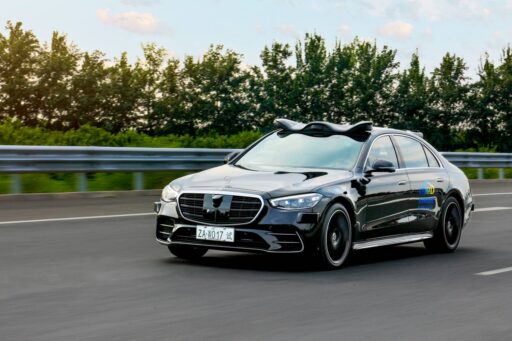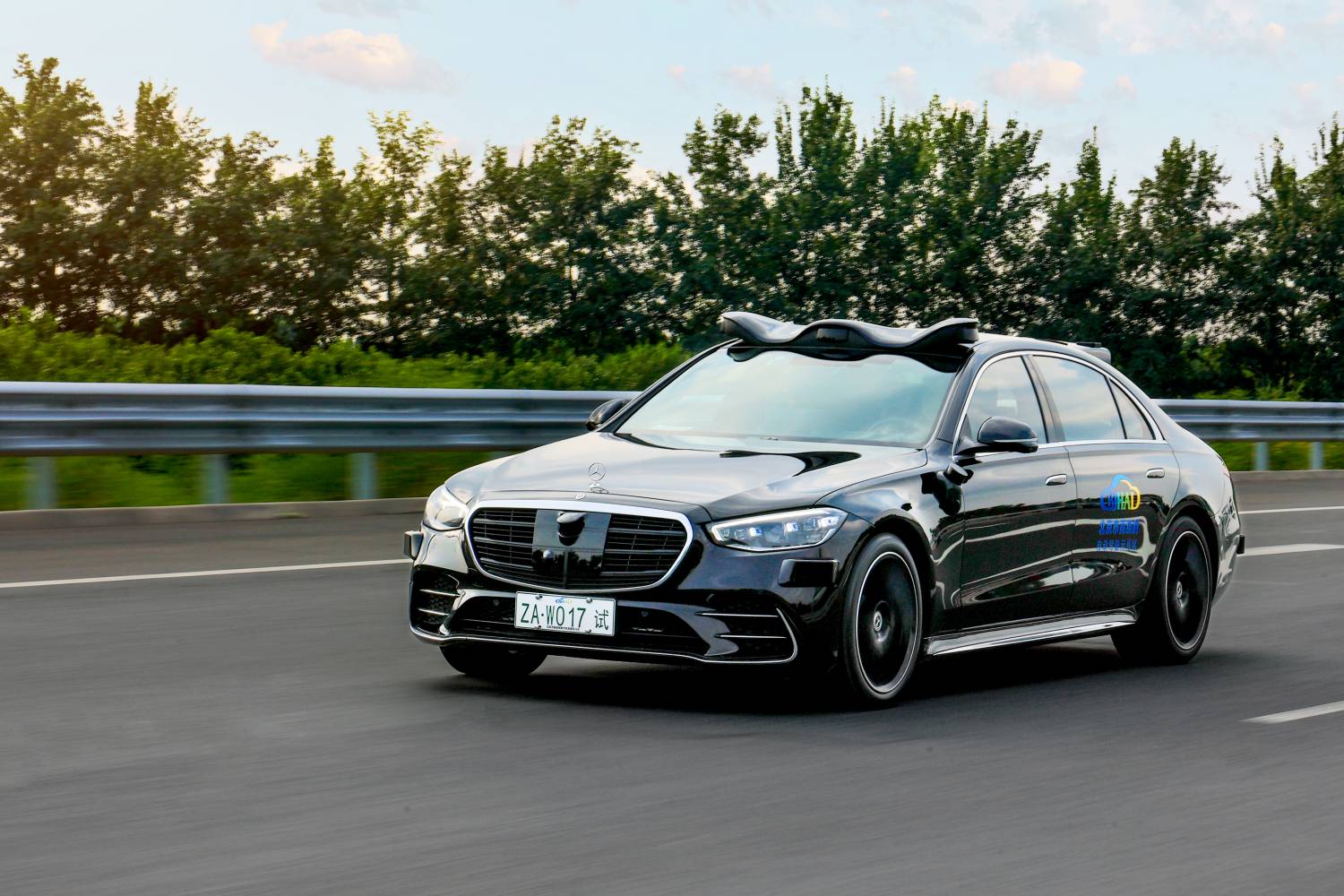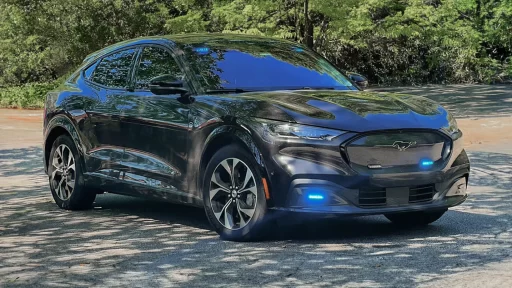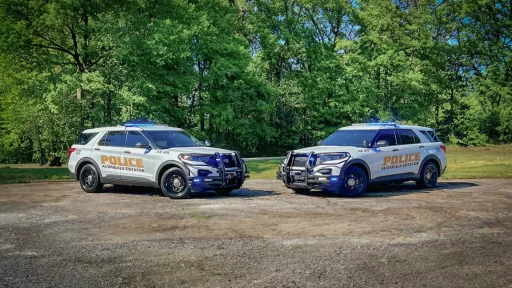Mercedes-Benz has achieved a significant milestone as the first international car manufacturer to receive approval for Level 4 automated driving testing on designated urban roads and highways in Beijing.
This marks a crucial step in the company’s ongoing efforts to advance automated driving technology, as part of Mercedes-Benz China’s broader research and development initiatives. This approval builds on the company’s earlier achievement at the end of 2023 when it became one of the first automakers to secure approval for Level 3 testing in Beijing.
Markus Schäfer, Chief Technology Officer at Mercedes-Benz, highlighted the company’s pioneering role in automotive innovation since its invention of the automobile 138 years ago. Schäfer emphasized that the development of automated driving systems is redefining the automobile’s role in society.
Mercedes-Benz currently offers more than 40 driver assistance systems, including enhanced Level 2 features, and was the first to introduce a Level 3 system to the market. With the new approval for Level 4 testing, Mercedes-Benz is poised to further solidify its leadership in autonomous driving, setting a new industry benchmark at what Schäfer describes as “China speed.”
READ MORE: Automobili Pininfarina Unveils B95 Gotham at Monterey Car Week
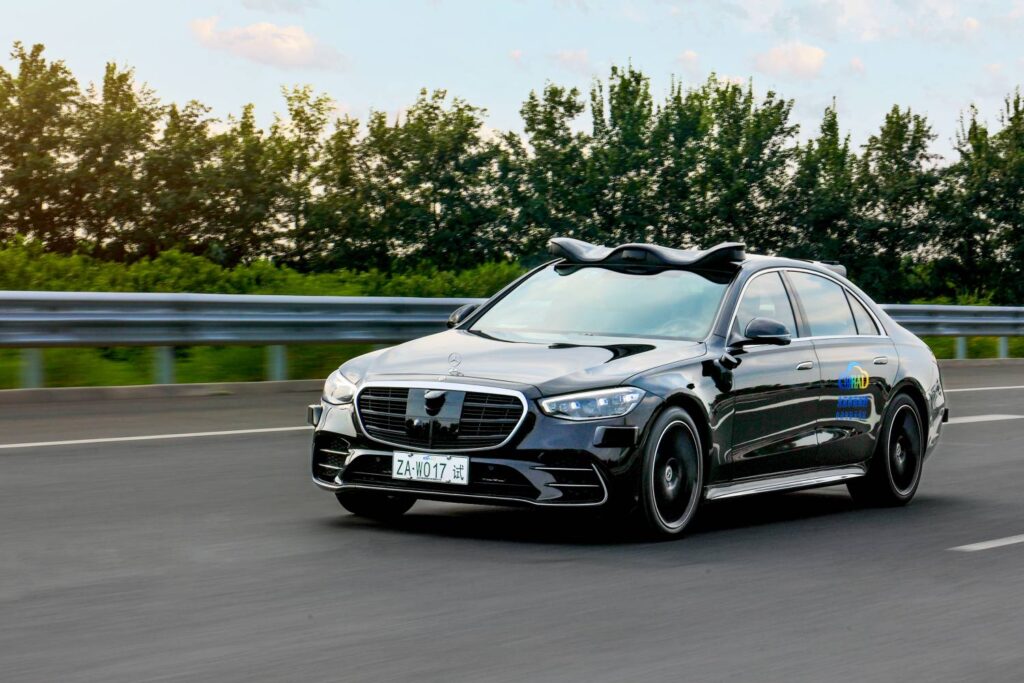
Oliver Löcher, Senior Executive Vice President of Mercedes-Benz Group China Ltd., echoed Schäfer’s sentiments, emphasizing the importance of China in the company’s global innovation strategy. He noted that the approval for Level 4 testing will accelerate the development of automated driving technology, thanks to the strong local R&D capabilities and partnerships in China. Mercedes-Benz has significantly increased its R&D investment in China in recent years, focusing on bringing cutting-edge, intelligent luxury products to meet the needs of Chinese consumers rapidly.
The Level 4 testing project in Beijing focuses on advanced multi-sensor perception, system performance validation under various conditions, and deep integration of these systems. Two specially upgraded Mercedes-Benz S-Class models are equipped with an array of sensors, including LiDAR, radar, and cameras, designed specifically for this project.
These vehicles are also outfitted with redundant systems to enhance safety. In urban settings, the vehicles are being tested to perform complex maneuvers, such as unprotected left turns, navigating roundabouts, U-turns, and parking. On highways, they can automatically change lanes, navigate toll stations, and, in extreme situations, execute minimal risk maneuvers to stop safely. Level 4 automated driving represents a high degree of automation, allowing the vehicle to handle driving tasks independently within defined scenarios, without requiring the driver to be ready to intervene.
Mercedes-Benz’s commitment to automated driving technology is rooted in decades of research, with initial efforts dating back to 1986. The company’s R&D activities in China have been instrumental in this progress, particularly with the recent development of the Level 2+ automated driving function, which supports navigation-assisted driving on highways and urban expressways across the country. This function, led by the China R&D team, debuted with the long-wheelbase E-Class and has received positive market feedback. It will soon be available in more Mercedes-Benz models.
Since establishing its local R&D operations in 2005, Mercedes-Benz China has become the most comprehensive R&D network outside Germany, encompassing advanced design, electrification, connectivity, automated driving, and vehicle testing. Over the past five years, the company has invested RMB 10.5 billion in R&D in China, leading to the launch of new R&D centers in Beijing and Shanghai, further strengthening its position in the rapidly evolving field of automated driving technology.
READ MORE: BMW 1 Series Makes Debut in Rocket League with Season 16 and Global Design Contest
Subscribe today for the freshest car news delivered to your inbox
